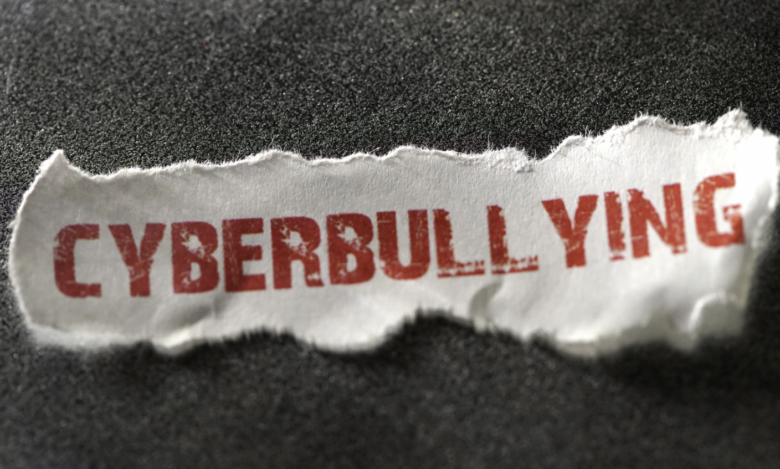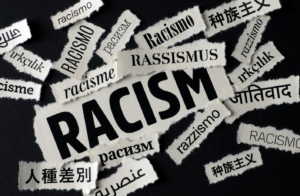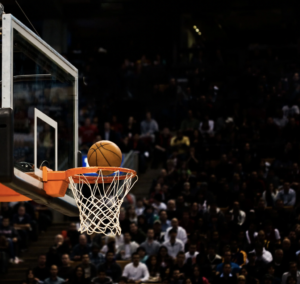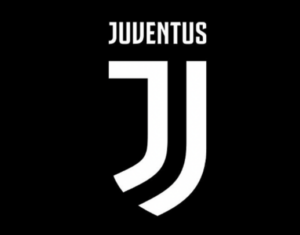Despite the fact that athletes have always been confronted with the issue of cyberbullying on social media, many now consider it to be a more severe problem.
People from all over the world are fully aware of the euphoric effects that these social media platforms may have. Less often, employees are threatened with physical danger as a consequence of their poor performance on the job. Regrettably, this is becoming an increasingly common occurrence for athletes competing at levels of professional competition.
A threat of murder was delivered to Moritz Muller, a German ice hockey player, via Instagram after the recent league defeat that the Cologne Sharks suffered by a score of 5-4. Within the first seventy seconds of the game, Muller was penalized for a major foul. After splattering a photo of Muller and his three children with blood and a knife, a user commented, “I would kill these worms after such a terrible game of yours.” Muller and his children were shown in the picture.
Regrettably, there are further situations that are similar to Muller’s.
Cobus Reinach, a South African scrum half who plays club rugby in France, received death threats on social media after the nail-biting World Cup quarterfinal match between the Springboks and France in the previous year. In the aftermath of the championship match, the well-known rugby union referee Wayne Barnes received a death threat as a result of his performance. A player for Hellas Verona named Thomas Henry recently said that he and his family have become the focus of death threats as a result of a missed penalty kick.
Anna-Lena von Hodenberg, the Chief Executive Officer of HateAid, said that “absolutely there has been an increase in death threats” with regard to the organization’s consultations during the course of the last five years. HateAid is a charitable organization that advocates for those who have been victimized by hate speech on the internet.
Required help with the structure
In spite of the current anti-hate speech campaign that Bayern Munich has been doing, von Hodenberg continues to argue that the club needs more than just one aggressive commercial.
It is clear that even the most well-known football teams and other sports, especially those that get less attention from the general public, put the responsibility of dealing with this matter on the shoulders of its people. She bemoaned the fact that no one was paying attention to the situation.
There is no provision of emotional support for the family of the athletes in the private conversations that they get with the athletes. Despite the fact that several sports teams claim that they are providing assistance to their players, our conversations have shown that it takes more than a single campaign to really make an impact. It is unfortunate that there is not yet any infrastructure in place to handle this problem in a uniform manner. It is necessary for there to be concrete support for you.
Von Hodenberg believes that the following aspects are of the utmost importance: the ease with which athletes can be accessed, the contractual need that many athletes must be active on social media, the absence of severe sanctions, and the handling of data by social media platforms.
Despite the fact that Germany approved a legislation in 2020 that criminalizes hate speech on social media, there has been no progress in the settlement of cases or growth of support infrastructure in the sports industry. A significant portion of this may be attributed to the fact that the majority of social media companies operating in Europe have their headquarters in Ireland and are thus subject to European regulation. Within this category are X (formerly known as Twitter) and Meta. In order for the authorities to determine who committed a crime, they must first go through a number of different processes, which may take many months.
Prosecutors in Germany contact the platforms directly and make the following statement: “There is inappropriate content here, including a death threat.” If you could, we would really appreciate it if you could provide us with information on the offenders that you have, such as the IP address. The majority of the time, they do not provide us with any information. In the end, the decision is left up to the businesses that own social media platforms. According to von Hodenberg, people may react favorably or badly depending on the circumstances. DW spoke with von Hodenberg.
When this is over, what will take place?
Although von Hodenberg believes that gaining access to the data of offenders would be a significant step in the right direction, he also believes that change would not occur overnight. As she continued, she said that it would be beneficial for sports teams to provide a support system for their athletes, for law enforcement to implement more effective measures, for there to be more public debate about the topic, and for there to be a larger level of interaction with the platforms overall.
Even in this day and age, the majority of sports teams continue to behave as if the problem is with the players on an individual level rather than addressing the structural problems that are at play. In addition to this, she said that they are in a position to bring about a shift in the society around sports.
A significant portion of the time, clubs and leagues in the world of sports are more concerned with attempting to influence culture via the games that they play. Nevertheless, the gravity of this issue is just growing; it is not something that will remain for the foreseeable future. If this risk is not addressed, it will have a negative impact not just on the physical performance of athletes but also on their mental health.
“The digital space is so much more invasive because the players have it on their smartphones in the morning, at night, in the most private hour,” von Hodenberg pointed out to reporters.
You will no longer be able to avoid this situation. The most significant distinction between this world and the analog one is that in the analog world, you were able to physically remove yourself from the hate it contained. You are unable to do so at this time. Consistently and without fail, it is present. This is the most significant mental obstacle that contemporary athletes must overcome.



